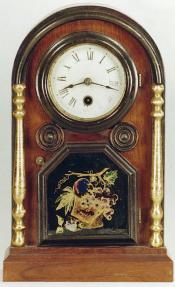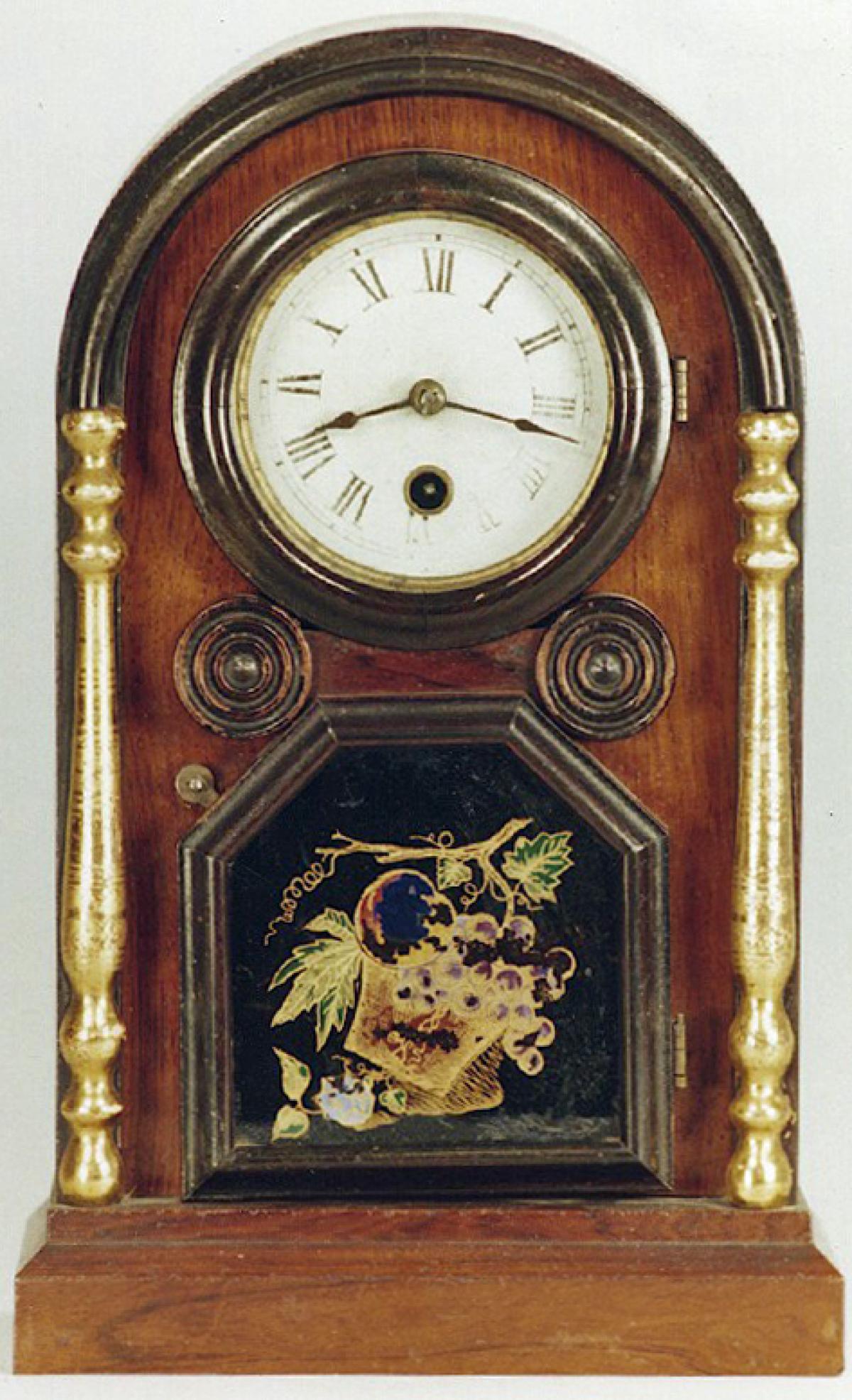Welch, Spring & Co. Italian No. 2. Shelf or mantel clock. BB-306.
This clock is in fine overall condition. This case is veneered in rosewood and features gilded columns on each side. The door is and "octagon" design and a variant of one produced by Ingraham having applied rosettes. The painted dial is original to the clock. It features Roman numerals painted on a tin pan. Numerals four, five, and six have been weakly restored. The lower section of the door features a reverse-painted decoration on glass. It is original to this clock. It depicts a small basket filled with grapes and apples. It does have some small areas of loss.
The movement is brass and designed to run for 30 hours on a full wind. It is powered by a coil spring. It has circular plates with a time-only design.
A partial label is pasted to the backboard.
This clock was made circa 1870.
Dimensions are 13.5 inches high, 8.25 inches wide, and 4 inches deep.


